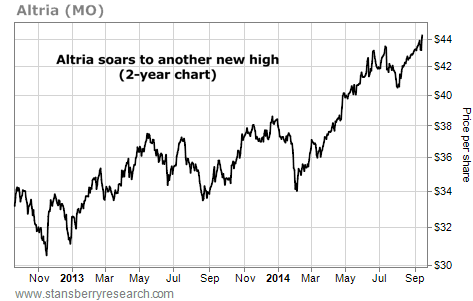| Home | About Us | Resources | Archive | Free Reports | Market Window |
Why I'm Recommending "Value Destroyers" TodayBy
Wednesday, September 17, 2014
I call them "value destroyers."
And over the past few months, I've been recommending them in my Extreme Value newsletter. They're going to be some of the best-performing stocks of the next three years.
I know that sounds odd. But let me explain...
Value destroyers are cyclical markets that have fallen dramatically – 50% or more – over a multiyear period. And the market I see the best value in today has been a value-destroying disaster since early 2011...
I'm talking about natural resources... metals, mining, and agricultural products. Gold stocks, coal stocks, uranium, nickel, copper, potash... you name it. It has all been crushed. And that's why this area is one of the market's biggest sources of bargain stocks...
To get an idea of how out-of-favor small-cap resource stocks are, we can look at the S&P TSX Venture Index. It's a good gauge of the small-cap resource stock market. You can see in the chart below how bad this sector has had it recently. From early 2011 to mid-2013, the index dropped 66%.
 But right now, there is a list of things that should make value investors bullish on natural resource stocks:
In other words... Blood is running in the streets in the natural resource sector. The TSX V is down huge and scraping bottom. It's lighting investors' money on fire. Buying into that kind of sector feels wrong to most investors. But deep bear markets create opportunities to make big money.
And if you know which stocks to focus on, you can make many times your money without taking huge risks.
In other words, to succeed in beaten-down resource markets, do the same thing you need to do in any other market:
And of course, don't buy unless you have a good idea of what the company is worth right now and can pay substantially less than that estimate. Don't get me wrong, there are still plenty of risky companies in this sector... but if you follow these guidelines, I believe you'll set yourself up for huge gains in the years ahead.
When will things turn around for small-cap resource stocks? I'm not sure... No one is. But as a value investor, I'm not interested in timing the market. I'm interested in buying quality assets that are trading at a discount to their true value... and waiting for the market to realize this value.
Right now, with stocks trading at all-time highs, these kinds of values are hard to find. But they exist in the small-cap natural resource sector... That's why I'm focused on this sector for my Extreme Value readers... and why I'm even putting my own money into it.
Good investing,
Dan Ferris
Further Reading:
"With U.S. stocks reaching all-time highs," Brett Eversole writes, "the best opportunities are in beaten and forgotten places." And he says small-cap resources "fit that mold perfectly today." Get all the details here: Rick Rule: This Is What a Bottom Feels Like.
Editor in Chief Brian Hunt says that to enjoy a lifetime of trading success, you've got to be able to spot "extremes" in the market. Learn how to become a "connoisseur of extremes" in this classic interview with Brian.
Market NotesA BASICS LEADER HITS A NEW HIGH Today's chart highlights the results of a safe, profitable investment strategy. It's one we've recommended dozens of times in these pages.
Although this is one of the world's greatest investment strategies, it comes with a warning. Here is it is: Selling the basics isn't exciting... it just works.
Regular DailyWealth readers know we're fans of owning boring, basic businesses that sell things like soda, soap, toothpaste, food, beer, and cigarettes. These firms don't produce "next big thing" technologies, but demand for their products is constant. And it's unlikely a new technology will render having a beer after work obsolete.
One of the great "basics" leaders is U.S. cigarette powerhouse Altria. Our friend and colleague Tom Dyson wrote an excellent piece on the company, which you can read here. As you can see from the chart below, Altria's share price has climbed from $34 per share to $44 per share over the past two years. The stock just reached a new high. Selling the basics isn't exciting... it just works.
 |
Recent Articles
|



